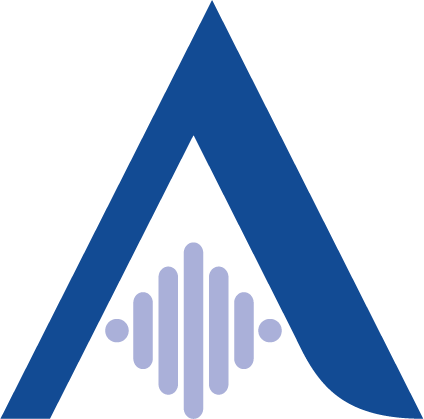Investor Relations
Home / Digital Change / Blockchain & Distributed Ledger Technology Solutions
Blockchain & Distributed Ledger Technology Solutions
Blockchain & Distributed Ledger Technology Solutions

-
Digital Change
- Internet of Things
- Blockchain & Distributed Ledger Technology Solutions
- Remote Sensing & Geographical Information System
- Artificial Intelligence
- AI & NLU for Customer Transformation Natural Experience
- AI & NLU for Customer Experience Information Management
- Enterprise Application Integration
- Mixed & Virtual Reality
- Cyber Security & Privacy
- Natural Language Processing
- Salesforce
- Service Management
- Application Performance Monitoring
- DevOps
- Digital Experience
- Cloud Services
- Data Center Infrastructure
- Industry
- Insight
-
- Internet of Things
- Blockchain & Distributed Ledger Technology Solutions
- Remote Sensing & Geographical Information System
- Artificial Intelligence
- AI & NLU for Customer Transformation Natural Experience
- AI & NLU for Customer Experience Information Management
- Enterprise Application Integration
- Mixed & Virtual Reality
- Cyber Security & Privacy
- Natural Language Processing
- Salesforce
- Service Management
- Application Performance Monitoring
- DevOps
- Digital Experience
- Cloud Services
- Data Center Infrastructure
- Industry
- Insight
A new response to the need to govern change
Artificial intelligence, robots and drones, immersive platforms, blockchains. The rapid decentralisation of the IT world is changing the world we live in. This change invests the way we work and produce, govern, join forces, communicate, produce culture and live. Markets, supply chains and business models are also changing. So too are the ways of generating value, employment and wealth. A new balance is emerging between the public and private sectors.
With Blockchain the global network is returning to its original vocation
Thanks to Blockchain and its technological nature driving web 3.0, the global network is returning to its original vocation of decentralised infrastructure: information belongs to everyone and everyone is invited to take part, contribute and share, without centralising knowledge, technology, data and services, yet outlining a shared advantage with an open approach.
A dedicated Competence Center
Almaviva has long since been experimenting with and creating decentralised solutions involving blockchains and distributed ledger technology (DLT), due to impact that these technologies have on business, providing adequate solutions to the need to govern the changes taking place, also in the wake of entirely new needs emerging in relation to ethics, transparency, trust and privacy.
Thanks to an active presence in the development communities at a global level and constant supervision of the Open Source and Enterprise scenarios (Bitcoin, Ethereum, Hyperledger, Corda are just a few examples), Almaviva experts are endowed with the necessary vision, knowledge and integration skills.
Collaboration, distribution, consensus. In all markets
If the implementation of cryptocurrencies such as Bitcoin is certainly the most famous usage case, Almaviva was nonetheless quick to grasp the technology’s potential, regardless of the assets governed, and has long since been proposing the technology’s use in other new and extremely diversified scenarios in which it becomes crucial to rely on new models of transparency, quality and security. This while striving to contain infrastructure costs.
Collaboration, distribution and consensus are the key words of this technology, already experimented by Almaviva in many concrete applications in public and private sector organisations. Some of the sectors involved include the agrifood, automotive, health, transport and digital administration industries.
Public or private? The third way proposed by AlmavivA
The debate on which Blockchain model to use is ongoing and complex. Typically permissionless for public Blockchains, or rather where everyone enjoys free access and can perform any role within the network; a Blockchain defined in this way, if widespread in terms of use and number of nodes, also guarantees the immutability of transactions.
Permissioned, on the other hand, is used for private or consortium-serving Blockchains, which are better paired with a “with permission” approach, based on one or more “trusted” subjects who are authorised to write the register, which makes it possible to avoid the use of cryptocurrencies and all the issues linked to them.
So, should you choose a public Blockchain or a private or consortium Blockchain? AlmavivA experience suggests a third way: a hybrid model which goes beyond this dichotomy and allows the full exploitation of the capabilities of both formats.
Almaviva hybrid model
Almaviva hybrid model combines the typical advantages of a permissioned Blockchain - such as the lack of cryptocurrency, high throughput and platform access control - with those of a permissionless Blockchain, also recognised at a regulatory level due to its guarantee of immutability, a feature which leads to the application of this technology in the majority of cases.
The architectural solution offered by Almaviva makes it possible to exploit heterogeneous Blockchain ecosystems to the full: by defining interoperability and communication criteria, the focus can shift to the functions, while the technologies are optimised transparently without adversely affecting service levels.
Almaviva: real production-ready solutions for public and private organisations
Almaviva stands beside all organisations seeking to radically transform their processes and business through innovative and sustainable architectures. By integrating the most advanced decentralised technologies, Almaviva proposes solutions that reduce the adoption and implementation complexity also thanks to proprietary production-ready products and its proven software integrator experience, thus tangibly boosting the digital transformation process of clients and partners.


Traceability
Non-replicable smart tags, Blockchain and distributed documentation to make the goods distribution chain reliable and certified.


Legal Automation
Ability to offer a legal contract with an electronic component, adding dynamism and automation, reacting to pre-established events and agreements automatically and irrepudiably.


Certificate of ownership
Decentralized management of the goods ownership without intermediaries and assurance of the certified history of the various ownership changes.


Notarization
Decentralized solution for notarizing digital assets or Digital Twins of real assets.


Privacy and GDPR
Managing the consents and data processing of users on Blockchain in a way that is decentralized and compliant with European GDPR legislation.


Smart Insurance
Creating decentralized insurance solutions with direct and automatic compensation upon the occurence of pre-established and certified conditions thanks to Smart Contracts.


Ticketing
Secure, non-replicable tickets and coupons, verifiable by buyers and IoT systems to guarantee controlled access based on capacity, automated calculation and certificate of copyright or interoperability quotas on cash back platforms.
Almaviva solutions: innovative characteristics and disruptive process models
Reduced time to market
Gradual adaptation of company IT systems; limited initial investment against immediate advantages
Confidentiality
Possibility of collaboration and verifications without having to disclose personal data; sending of data only to enabled subjects; full control over own information
Fair cost-splitting
The subject only bears the cost of its own IT infrastructure (on-premises cloud)
Unique identity throughout the supply chain
Same degree of safety both when accessing and using the services (e.g. within a logistics node)
Simplification of workflows
Creating a status overview and having fragmented visibility on own information
Certified agreements and automation
Smart contracts define clear rules to which all players are bound and automatically carry out the defined operations
Collaborative and inclusive platforms
Open, no lock-in platforms on a specific IT services provider
Maximum interoperability
Open source platforms and instruments facilitate sharing of data among different subjects; there is no need to invent an own blockchain, as it is possible to adhere to existing ecosystems
Reports without disclosure
Possibility of producing reports and statistics of encrypted data without disclosing detailed information (homomorphic encryption)
Transparency and control
The blockchain ensures full transparency and can be easily consulted by audit systems: supervisory bodies can verify the correct conduct of the parties involved
Reduced time to market
Gradual adaptation of company IT systems; limited initial investment against immediate advantages
Confidentiality
Possibility of collaboration and verifications without having to disclose personal data; sending of data only to enabled subjects; full control over own information
Fair cost-splitting
The subject only bears the cost of its own IT infrastructure (on-premises cloud)
Unique identity throughout the supply chain
Same degree of safety both when accessing and using the services (e.g. within a logistics node)
Simplification of workflows
Creating a status overview and having fragmented visibility on own information
Certified agreements and automation
Smart contracts define clear rules to which all players are bound and automatically carry out the defined operations
Collaborative and inclusive platforms
Open, no lock-in platforms on a specific IT services provider
Maximum interoperability
Open source platforms and instruments facilitate sharing of data among different subjects; there is no need to invent an own blockchain, as it is possible to adhere to existing ecosystems
Reports without disclosure
Possibility of producing reports and statistics of encrypted data without disclosing detailed information (homomorphic encryption)
Transparency and control
The blockchain ensures full transparency and can be easily consulted by audit systems: supervisory bodies can verify the correct conduct of the parties involved
“Our solutions are already used in business processes of large-scale organisations: some examples?”
Case Study
ROUGE, the hi-tech tag for PGI Sicily’s blood oranges
The fight against counterfeiting of “Made in Italy” citrus fruits now has a new ally
Case Study
Enology to safeguarde Made in Italy wine
The traceability of wine provides consumers with a guarantee of quality and safety as well as underpinning the efforts of supervisory bodies to prevent fraudulent operations
Focus on
Blockchain for Health Care
A new response to the need to govern change in the world of healthcare as well
Contact the Blockchain & Distributed Ledger Technology Solutions Team
Digital Change
Internet of Things
Digital Change
Remote Sensing & Geographical Information System

- About us
- Our Group
- Corporate governance
- Sustainability
- Media
- News
- Press Release
- Press Contact
- Work with us
- Work with us
- Investor Relations
- Group Profile
- Reports and Presentations
- Communications
- OPA on Almawave S.p.A.
- Calendar
- Contact us

Copyright Almaviva S.p.A. 2018
Head office and offices
00137 Rome
Via di Casal Boccone, 188-190
tel. (+39)-06.39931
C.F./P.IVA 08450891000
